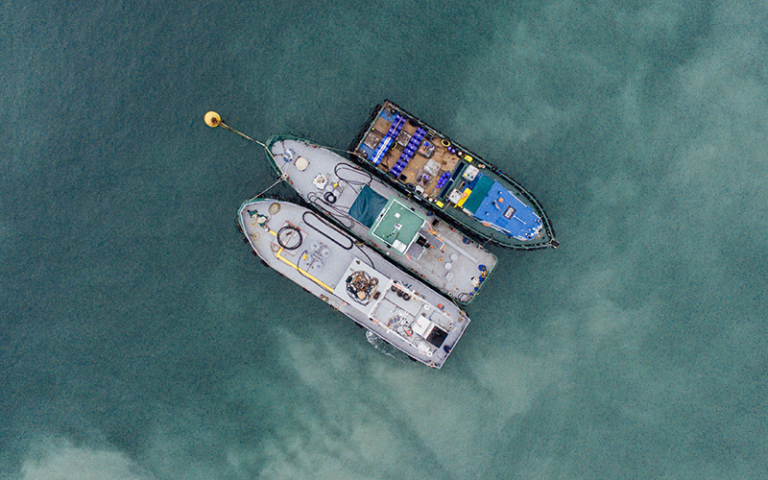Decarbonisation of shipping will take place on land as well as at sea
20 January 2020
Over $1 trillion investment will be needed to decarbonise shipping, according to a new study from UMAS, a UCL-Energy and UMAS International partnership.

The study was conducted by University Maritime Advisory Services (UMAS) and the Energy Transitions Commission (ETC), and found that reducing the industry’s greenhouse gas (GHG) emissions by 50% by 2050 will require approximately $1 trillion (USD).
According to the study, the annual average investment needed would be $40-60 billion over the next two decades, and to fully decarbonise the global shipping industry by 2050, an additional $400 billion of investment would be needed over 20 years, bringing the total to $1.4 - 1.9 trillion.
Dr Tristan Smith, Lecturer at UCL’s Energy Institute involved in the study, said:
“Our analysis suggests we will see a disruptive and rapid change to align to a new zero carbon system, with fossil fuel aligned assets becoming obsolete or needing significant modification.”
Around 87% of the total investment is needed in the land-based infrastructure and production facilities for low carbon fuels.
Only 13% of the investments needed are related to the ships themselves which includes the machinery and on-board storage required for a ship to run on low-carbon fuel.
The target of cutting GHG emissions by at least 50% over the next three decades was set by the U.N. shipping agency, the International Maritime Organisation’s (IMO) in April 2018, marking the first commitment made by the sector to tackle climate change.
More information
- Read more on the UMAS website
- Read the full insight brief on the Global Maritime Forum website
- Read coverage of this story in the New York Times
- Find out more about UCL Energy Institute's Shipping Team
 Close
Close

